Manage an integral part of the healthcare process with one of the best medical coding degrees.
The data infrastructure around the medical field is massive. There are thousands of diseases and medical conditions, and tens of thousands of doctors, hospitals, and urgent care centers in our country.
Every day, these medical centers communicate with each other, precisely and quickly communicating the information of their patients. Learn how they do so with one of the 10 Best Associates in Medical Coding programs.
Trained medical coders can translate everything from medicines to conditions to dental and surgical procedures into easy-to-read code. With that code, healthcare centers can concisely communicate patient needs. That saves thousands of hours of work per week for medical providers, which equals millions of dollars per year.
As programming languages help systems, websites, and companies operate, medical code keeps the healthcare system afloat. And with six different code sets in the United States, and one language—International Classification of Diseases—used around the world, medical coders have a lot on their plate. But with an associate in medical coding, the many pieces that make up medical coding become much easier to absorb.
What Are the Best Associates in Medical Coding Degrees?
At CollegeRank, we strive to do our best to guide you and your family toward a fruitful academic career. The pursuit of knowledge is a noble one, and we want to help you reach your goals. Please feel free to visit our dedicated methodology page for a step-by-step breakdown. For questions, comments, badge downloads, or data corrections, please feel free to reach out to us at editor@www.collegerank.net.
Weber State University

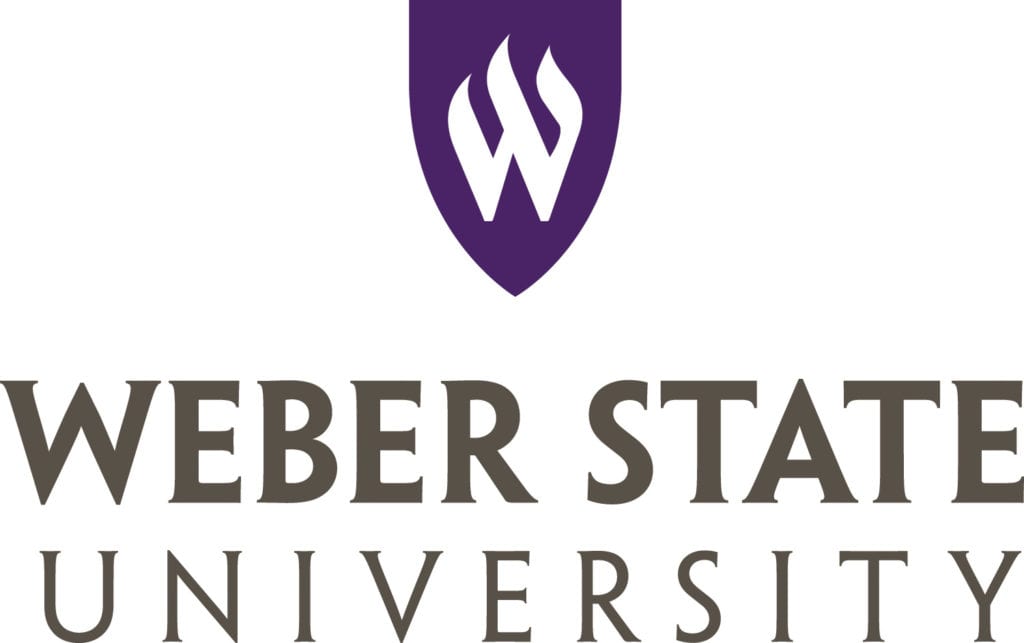
There are dozens of fantastic medical coding degrees across the United States. Still, we believe that Weber State University’s Associate of Applied Sciences program is at the top of the list. The program is affordable, high-quality, and more than able to prepare you for the Registered Health Information Technician (RHIT®) exam.
Students take a combination of technical and scientific classes. Some specialized courses that students take are Ambulatory & Physician Office Coding, ICD-10-PCS Coding, and Health Informatics. Students also learn the background of the healthcare industry with classes like Intro to Pathophysiology, Intro to Pharmacology, and Intro to Spreadsheets.
Weber State University offers a convenient online option for students who hold other jobs or would prefer to study from home. To apply to this school, students need a 2.0 or higher GPA, pay a $25 application fee, and complete the application. Additionally, students must complete two prerequisite classes, which are Medical Terminology and Integrated Human Anatomy.
Northwest Technical College
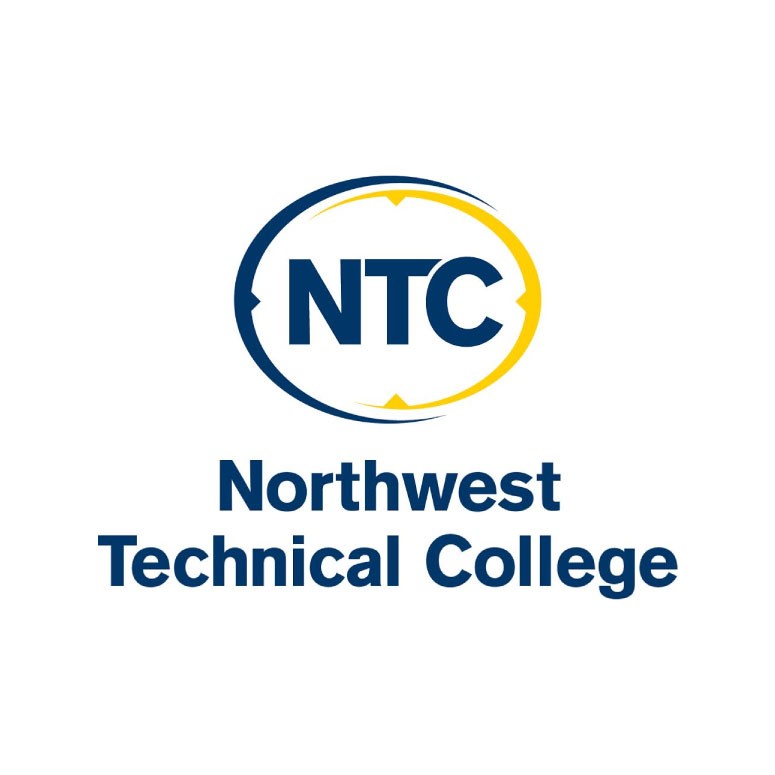
Northwest Technical College offers an excellent Associate of Applied Science program. The 60-credit degree combines technical knowledge in specific codes with a background in healthcare infrastructure, underlying medical issues, and the human body. Depending on a student’s high school transcript and career goals, NTC may also require students to enroll in reading, writing, and math courses.
Being a medical coder requires a strong writing, technical, and analytical background. The curriculum will enhance your skills with classes like College Writing, Intro to Public Speaking, and Bioethical Issues in Contemporary Society. Students also enroll in focused medical coding classes like Medical Language Applications, Advanced CPT & HCPCS, and Advanced ICD-10.
Most graduates from this program become medical records and health information technicians. Some graduates have gone on to slightly different careers like medical secretaries and medical transcriptionists. These positions require a similar background and comprise duties similar to those of a medical coder. Other graduates have transferred to four-year programs to finish a bachelor’s degree in a related field.
Central Texas College

Central Texas College offers one of the most robust medical office technology departments in the country. From medical coding to medical office technology, the university has several programs that help students reach their professional goals.
Central Texas College’s Associate of Applied Science in Medical Coding and Billing is a 60-credit program that is available online or on-campus. There are two on-campus options: weekdays, like most college programs, or weekends for those living busy lives.
Central Texas College students take courses like Health Data Content & Structure, Pharmacology, Medical Terminology, and Medical Software Applications. Enrolled students also take more general classes like Business English, Composition, and the student’s chosen humanities elective.
Central Texas College offers stackable degrees, i.e. programs that grant you a degree and a certificate. While this program prepares you specifically for medical coding and billing, you can use your associate degree to obtain many other jobs should you ever decide that medical coding isn’t for you.
Southwest Wisconsin Technical College

Southwest Wisconsin Technical College offers an excellent technical diploma in medical coding. Prospective students should note that this program provides a useful diploma, but not an associate degree.
The diploma provides students with proof of their ability to work in medical coding contexts. To that end, it acts as the equivalent of an associate degree. It’s less dynamic, though, because the degree isn’t transferable to other careers.
But if medical coding is your end goal, and you’re confident about that, Southwestern Wisconsin Technical College will provide you with the skills to excel in the field. Students take courses like Medical Terminology, Digital Literacy for Healthcare, ICD Diagnosis Coding, and Health Revenue Management. These classes give students the necessary coding and medical skills to work in any medical setting.
To join the program, prospective students must complete the online application and pay a $30 application fee. Then, they must submit ACT or SAT scores, their GPA, official transcripts, and college transcripts if they’re transferring. Additionally, students must interview with the department before gaining admission.
Highland Community College
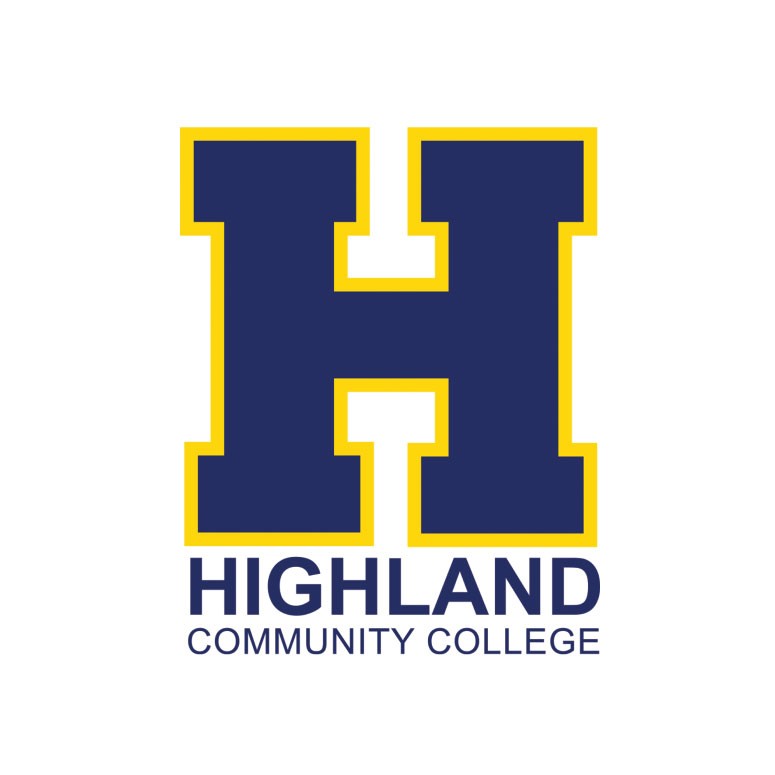
Community colleges are known for providing excellent programs that don’t break the bank, and Highland Community College is no exception to this rule. Going above and beyond many other community colleges, Highland offers an online program option to its students. That way, you can enroll in an affordable program and complete the degree from the comfort of your home.
Graduates from Highland Community College’s Associate in Applied Science–Medical Coding program will have the skills to code in all types of settings. Graduates who work at insurance providers will be more than proficient in the billing side of medical coding. Graduates who work in hospitals will know exactly how to code medical conditions, procedures, and billings.
To complete this program, students must enroll in a healthcare coding practicum, which requires experience in a clinical setting. Students also take classes like Medical Terminology, Current Procedural Terminology, Reimbursement Methodologies, and Introduction to Health Information.
Herzing University

Herzing University offers an excellent and dynamic medical coding associate degree program. The program prepares students for the Certified Coding Specialist (CCS) qualification and Certified Coding Associate (CCA) exam.
Additionally, Herzing University provides you with the technical tools to work in inpatient or outpatient coding. No matter where your focus within the medical coding field lies, a Herzing degree will take you there.
What makes this program so dynamic is the six start dates of the program. With so many start dates, you won’t have to wait to accomplish your goals. And with an online program option, students won’t have to move across the state or commute. Students can complete the program in as little as 18 months, but there is room for students to drag out the program if they wish.
Because Herzing University has several campuses across the nation, students can complete the degree in one of the following locations: Atlanta, Georgia; Birmingham, Alabama; Brookfield, Wisconsin; Kenosha, Wisconsin; Madison, Wisconsin; Minneapolis, Minnesota; New Orleans, Louisiana; and Orlando, Florida.
Bowling Green State University

Bowling Green State University is one of the most recognizable names on this list. Their coding and medical billing program is one of the best in the country. In this program, students will learn the skills necessary to do advanced coding in outpatient, inpatient, auditing, and insurance centers. After graduating from these programs, graduates will know how to code everything from reimbursement policies to causes of death.
Students begin this program with introductory classes like Academic Writing, Speech Communication, General Psychology, and Introduction to Statistics. Then, students take more technical courses such as Pathophysiology, Business Mathematics, Electronic Health Record Applications, and MedicoLegal Aspects of Health Information. By the end of this program, students will be proficient in ICD9CM, ICD-10-PCS, CPT, and HCPCS.
Bowling Green students can finish with an associate degree or use the program to work toward a B.S. in advanced technological education. Whatever degree you want, though, Bowling Green is an excellent starting and endpoint.
Southeast Technical Institute
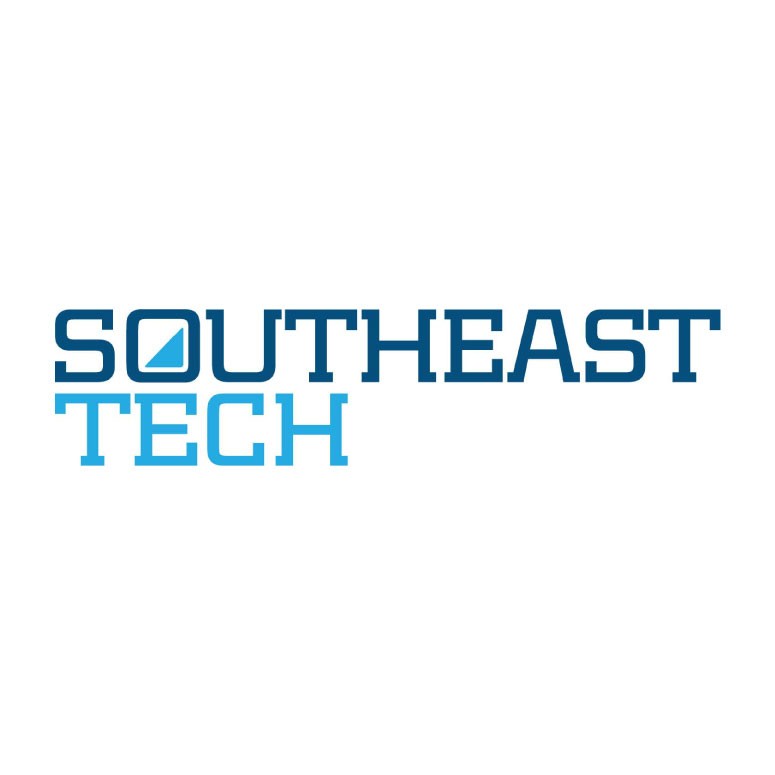
Southeast Technical Institute’s associate program in medical coding: professional and facility prepares students for a number of workplaces. Do you want to work in a hospital, or would you prefer to work with an auditing firm or insurance company? No matter where you wish to live out your professional career, Southeast Technical Institute’s program will take you there. And more, it will give you the tools to prosper.
Like many programs on this list, Southeast Technical Institute provides students with an associate degree as well as a certificate. Students can choose to take the Certified Professional Coder (CPC) exam, the Certified Inpatient Coder (CIC) exam, or the Certified Coding Specialist (CCS). Each of these exams will give you the certifications to gain different jobs and excel in each of them.
Students can take classes on-campus or online. Either way, students will enroll in courses like Basic CPT Coding, Introduction to Health Information Services, Pathophysiology, and Professional Ethics in Healthcare.
Keiser University
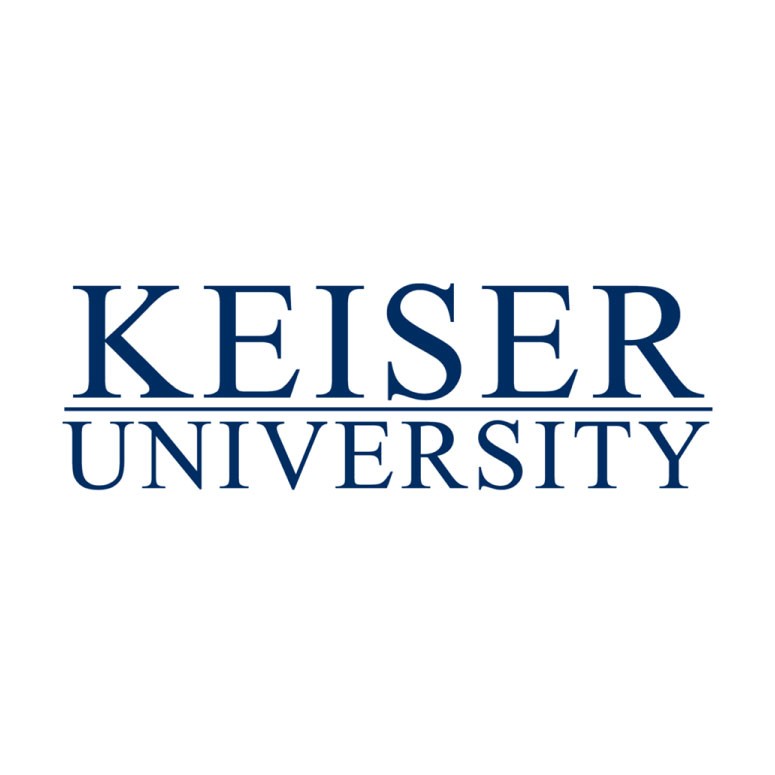
Keiser University offers an excellent Associate in Medical Billing & Coding program. Students can complete this program in the following places: Daytona Beach, Fort Lauderdale, Fort Myers, Jacksonville, Lakeland, Naples, New Port Richey, Orlando, Pembroke Pines, Port St. Lucie, Tampa Bay, or online. No matter where you are in Florida, you can find a campus near you.
As far as medical coding programs go, Keiser University has an emphasis on the liberal arts. Students take classes in social science, math, computers, English, and fine arts. Of course, students also take medical coding courses like Medical Law & Ethics, Computerized Medical Office Management, Pathophysiology, and Basic ICD-10 Coding.
Students must complete a medical externship in addition to their coursework. This externship provides students with experience working alongside medical coders and applying their technical knowledge. Like the other programs on this list, Keiser University’s program prepares students to take the examinations to receive the required medical coding certifications.
Peirce College

While medical coding is a technical profession, it requires a background in several professional and non-technical subjects. Students need to be familiar with technical writing, anatomy, physiology, customer service, medical terminology, and records management to be competent medical coders. Students also enroll in preparatory classes like College Success and Introduction to the Medical Office.
Unique to Peirce College, students take Keyboard Skill Development: Alpha and Technical Improvement, which focuses on helping students accelerate their typing skills. Students also take classes to familiarize them with email, Microsoft Access, and Microsoft Outlook. Then, students take medical coding courses like Electronic Health Records, Medical Forms & Referral Management, Diagnosis Coding, and CPT Coding.
This Associate of Applied Science medical billing and coding program is affordable and applicable to many professions—medical coding and beyond. Graduates in this program have become medical coders, medical secretaries, and informatics technicians. Peirce College requires students to obtain 95 credits, which students can achieve in two years or less.
Frequently Asked Questions
If you’re thinking about a career in medical coding, here are some options for degrees that could help:
Associate’s Degree in Health Information Management (HIM) or Medical Billing and Coding: This degree focuses on medical coding, teaching you about healthcare systems, codes used in billing, and how to organize medical records.
Bachelor’s Degree in Health Information Management or Healthcare Administration: This takes a bit longer but gives you a broader understanding of healthcare systems, technology, and management. It can open up more opportunities beyond just coding.
Online Training and Certification Programs: There are many online courses available that prepare you for specific coding certifications. These can be a good choice if you prefer online learning.
According to the BLS, medical records and health information technicians work in the following locations:
• 34% work in public and private hospitals
• 19% work in the offices of physicians
• 8% work in professional, technical, and scientific services
• 7% work in administrative and support services
• 5% work in nursing care facilities
A position as a medical records and health information technician won’t make you a millionaire. But for the short college program and its affordability, becoming a medical coder is a lot of bang for your buck. According to the BLS, the average medical records and health information technician earns an average of $40,350 per year or $19.40 per hour. While this number may not impress you, you also have to consider that, unlike many bachelor’s graduates, no medical coders face crippling debt.
Deciding if a medical coding degree is worth it depends on your interests and goals. Here are some things to consider:
Career Prospects: Medical coding jobs are in demand. A degree or certification can help you land a job in hospitals, clinics, or insurance companies.
Job Flexibility: Coding lets you work in healthcare without direct patient care. It’s more behind-the-scenes. Some people like that!
Career Growth: Having a degree might help you move into higher-paying roles or management positions later.
The medical coding certificate is shorter, often taking around 6 months to 1 year. It focuses specifically on:
• medical coding skills
• coding systems
• preparing for coding certification exams
The associate’s degree takes longer, usually 2 years. It covers a broader range of topics beyond coding, such as:
• healthcare systems
• anatomy
• billing
• medical terminology
Many medical coders have the option to work remotely, especially with the rise of electronic health records and telecommuting opportunities. However, not all medical coding positions offer remote work,. Some employers prefer in-office or onsite coders for various reasons. Working remotely can vary based on the employer and job requirements.
Medical coding is stable due to the consistent need for accurate healthcare documentation and billing. With the healthcare industry’s growth and evolving regulations, skilled coders are in demand to ensure proper coding and billing procedures. This makes it a stable career choice. However, staying updated with coding changes and advancements is crucial for long-term success in this field.
Related:
- Best Online Bachelors Degrees in Healthcare Administration
- Top Bachelor’s in Health Informatics
- How Long Does it Take to Get an Associate Degree?
